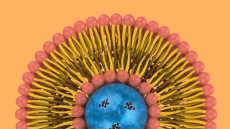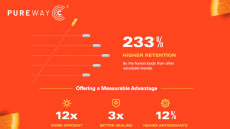Could lizard love vitamin make humans attractive too?
see me? Researchers from Spain have reported that increased
secretion of a vitamin D metabolite by male lizards could make it
easier for them to attract a mate.
But whether a similar mechanism is at work in other species is not yet known, lead researcher José Martin told the BBC website, so it seems that human love-seekers may have to rely on tried and tested techniques for the moment.
The role of micronutrients in male attractiveness has already been proposed by researchers for specific species, most notably carotenoids and other pigments with antioxidant function affecting colour for male fish and birds.
Sexual selection based on nutrient intake is said to be a true reflection of the health and vitality of an individual animal, so-called 'honest' signalling, since the organism must divert these precious nutrients away from metabolism.
A stronger colour for the male house finch (Carpodacus mexicanus), for example, is said to indicate the improved health, and therefore attractiveness, since weaker colouring is associated with increased parasitic load and poorer health (Trends in Ecology & Evolution, Vol. 13, pp. 510-514).
And now research from the National Museum of Natural Sciences in Madrid suggests that vitamin D status in lizards may have similar effects in terms of attractiveness to potential mates.
The researchers focussed on vitamin D because it is, like in humans, an essential nutrient for lizards. Not only that but its precursor (cholesta-5,7-dien-3-ol) is also found in femoral gland secretions that are used for communication and scent marking.
Twenty adult male Iberian rock lizards were randomly assigned to one of two groups - the control group (no supplementation) and the vitamin D supplement group. Up to ten doses of a multivitamin solution were given to lizards once every two days. Each dose provided about 7.37 IU (0.18 mg) of vitamin D3.
It was found that the supplemented males had increased cholesta-5,7-dien-3-ol (provitamin D) in their femoral secretions than the control males.
To test if the secretions of both the supplemented and control lizards had an effect on female lizards, the researchers gently squeezed the waxy femoral secretions onto a cotton tip and then observed and measured the tongue-flicking response of the females.
Apparently, in lady lizards, increased tongue-flicking is a good thing, and the supplemented group's secretions are reported to have been met with some serious tongue-flicking, compared to the control group's secretions.
In another experiment using secretions with varying concentrations of provitamin D, it was found that the highest number of tongue-flicks were directed at the high concentration provitamin D cotton buds, indicating that the reaction to the chemical stimuli was related to provitamin D concentrations.
The researcher then let the supplemented and non-supplemented males walk around on strips of paper, allowing for the males to scent mark the paper. Females were subsequently found to spend "more time on paper strips scent marked" by the supplemented male lizards than on those marked by the unsupplemented reptiles.
"Our results suggest a 'scenario' for chemical signals as honest signals of male quality that looks extremely similar to visual signals based on carotenoids or other pigments with antioxidant function," said Dr. Martin in the Proceedings of the Royal Society B: Biological Sciences (doi: 10.1098/rspb.2006.3619).
Although, as said previously, it is not known if such results can be extended to humans, but the work has opened up new avenues of research.
"We suggest that the allocation of vitamins and other essential nutrients to either visual (for example, carotenoids) or chemical ornaments might be the common basis of honest sexual displays in many animals," concluded the researchers.
No such studies have been reported in humans, but questions must be raised as to whether subtle nutrient secretions would reach the nostrils of potentially receptive ladies such is the quantity of after-shave worn by some men.











